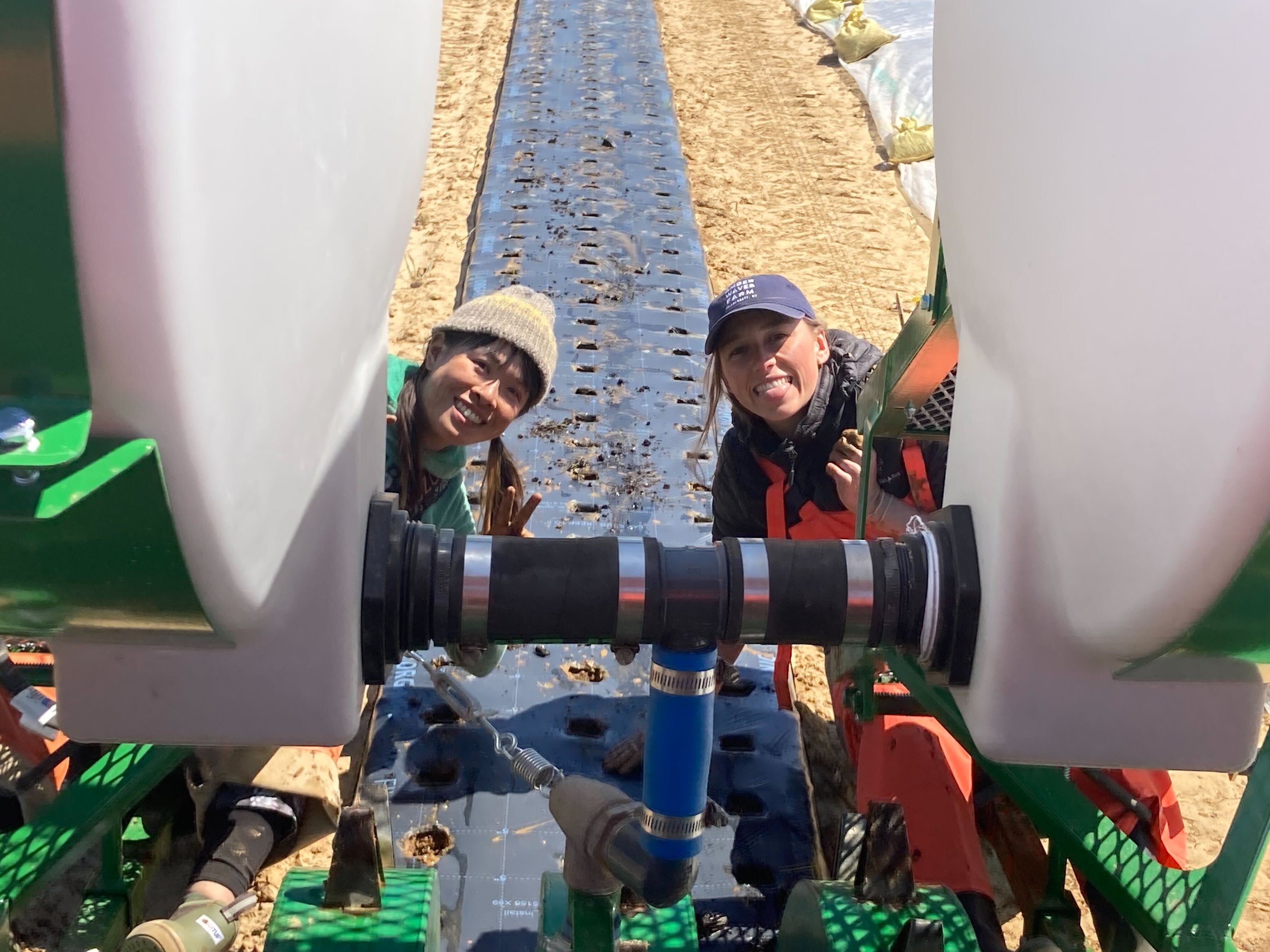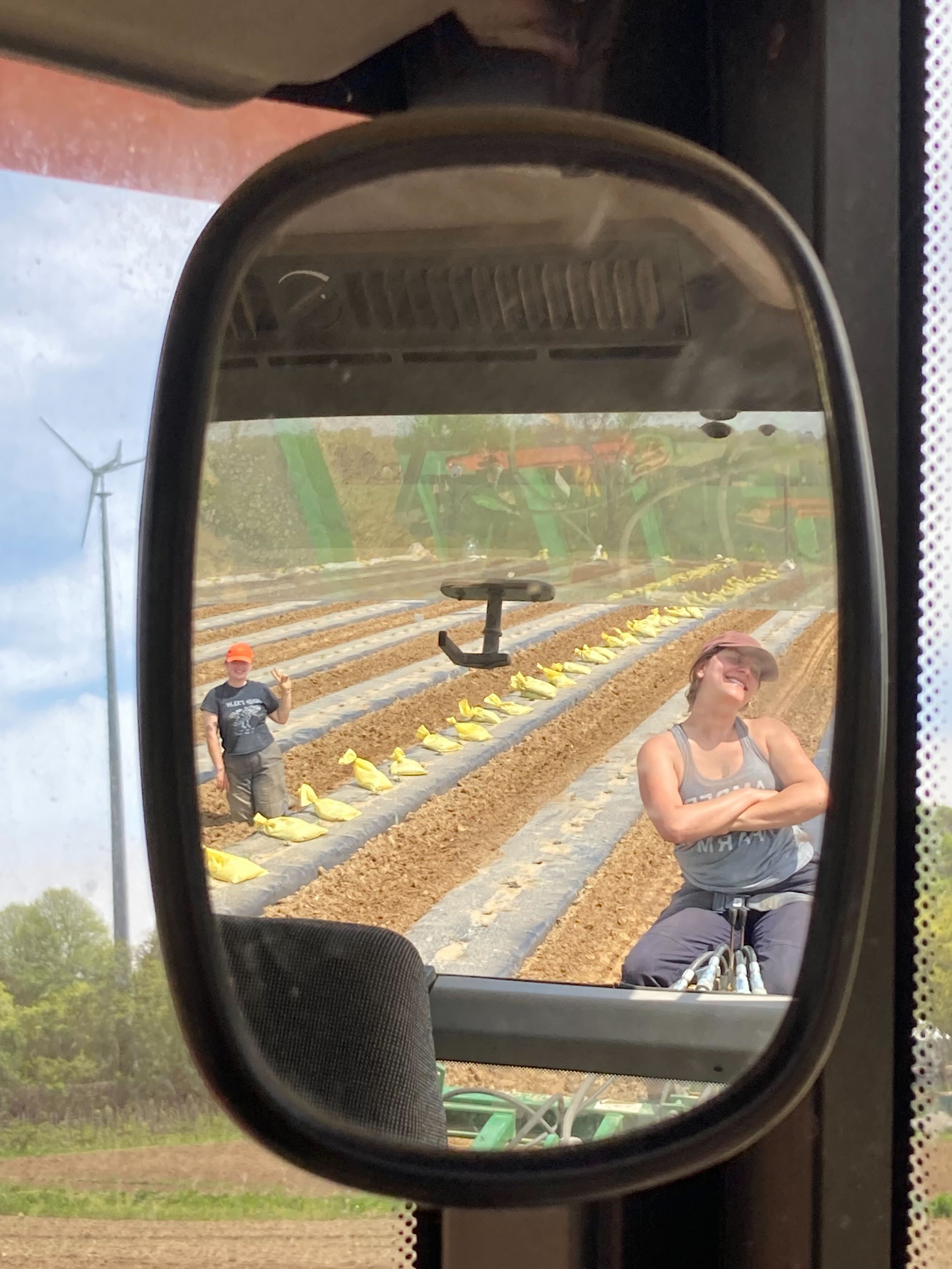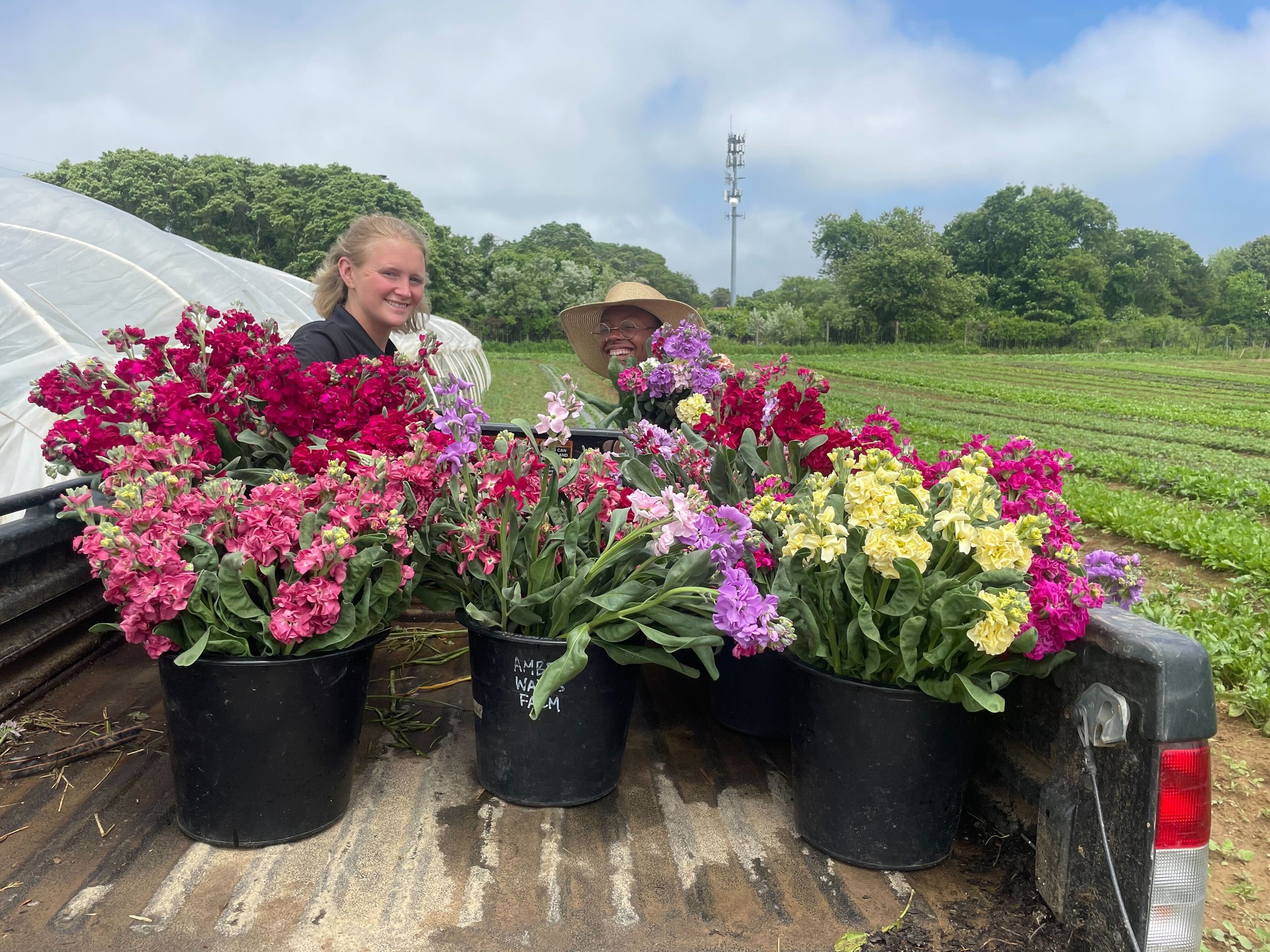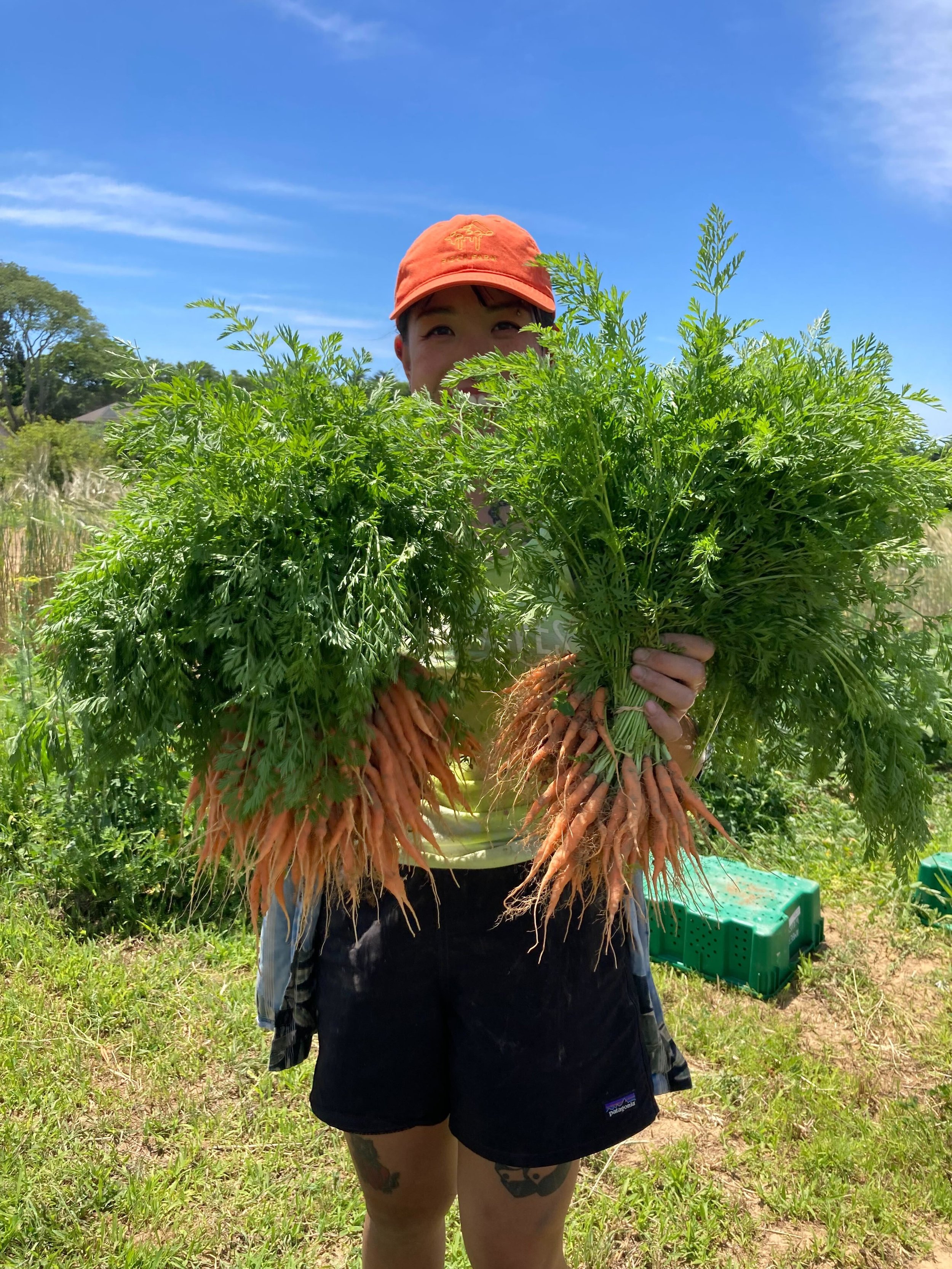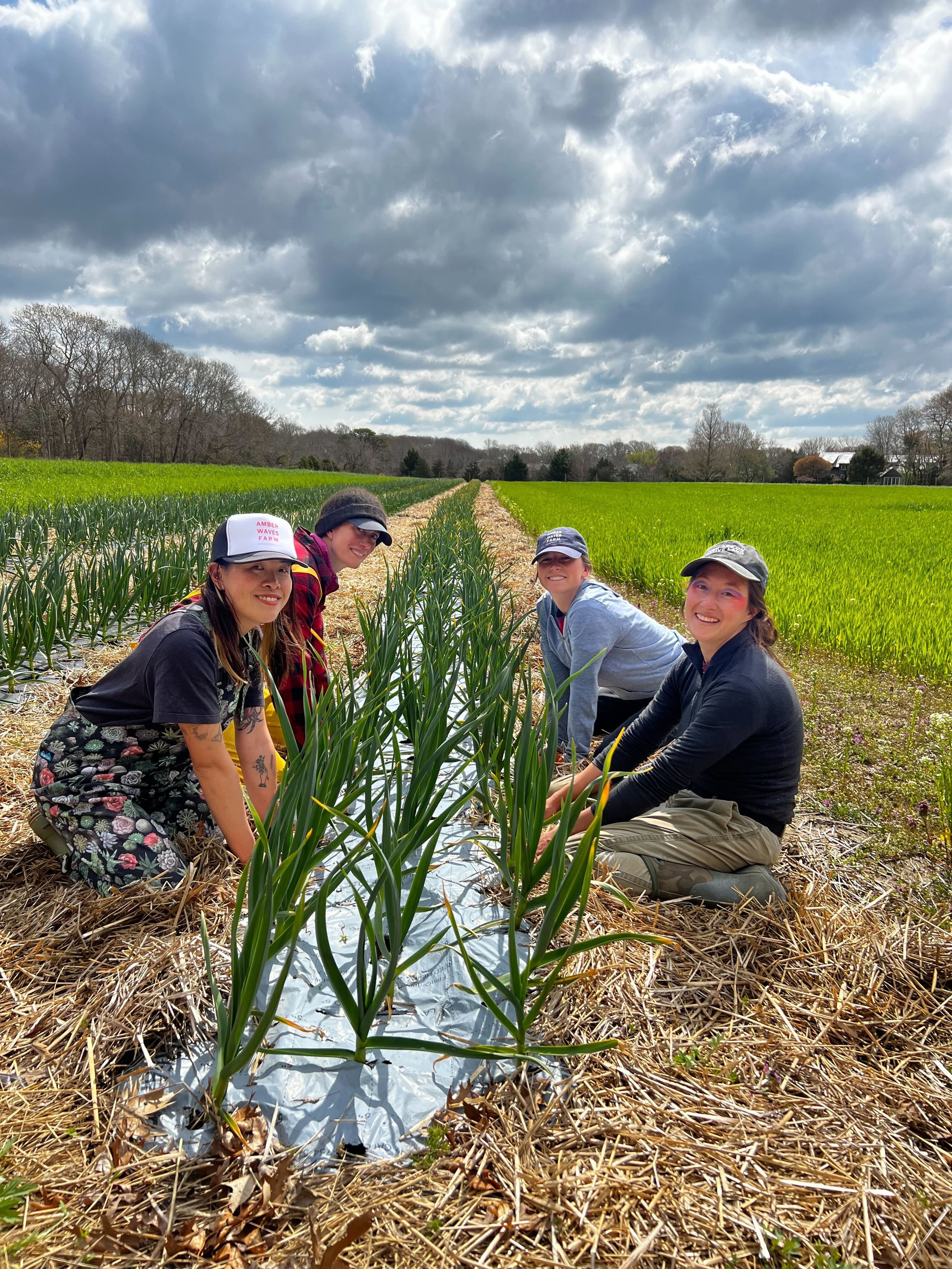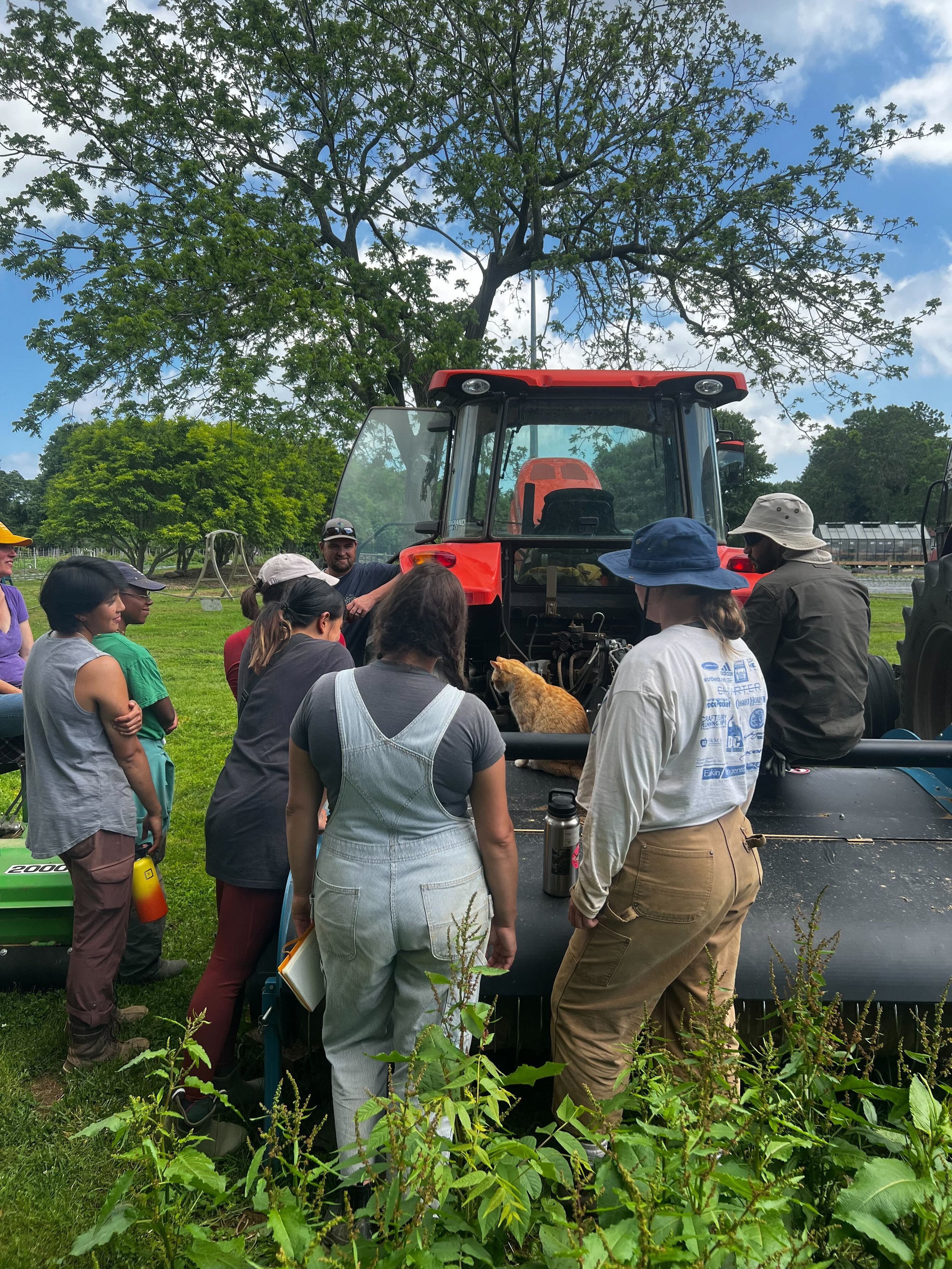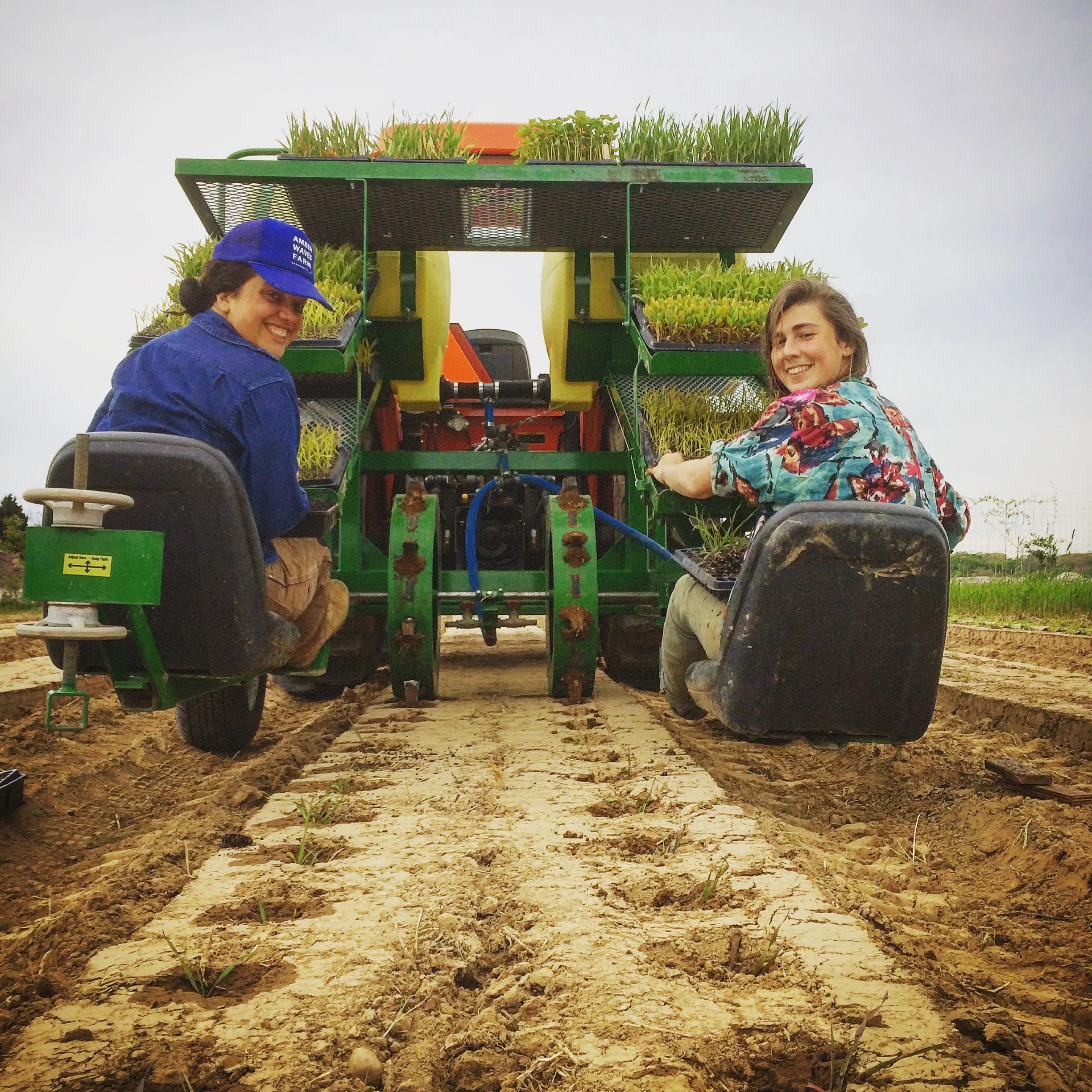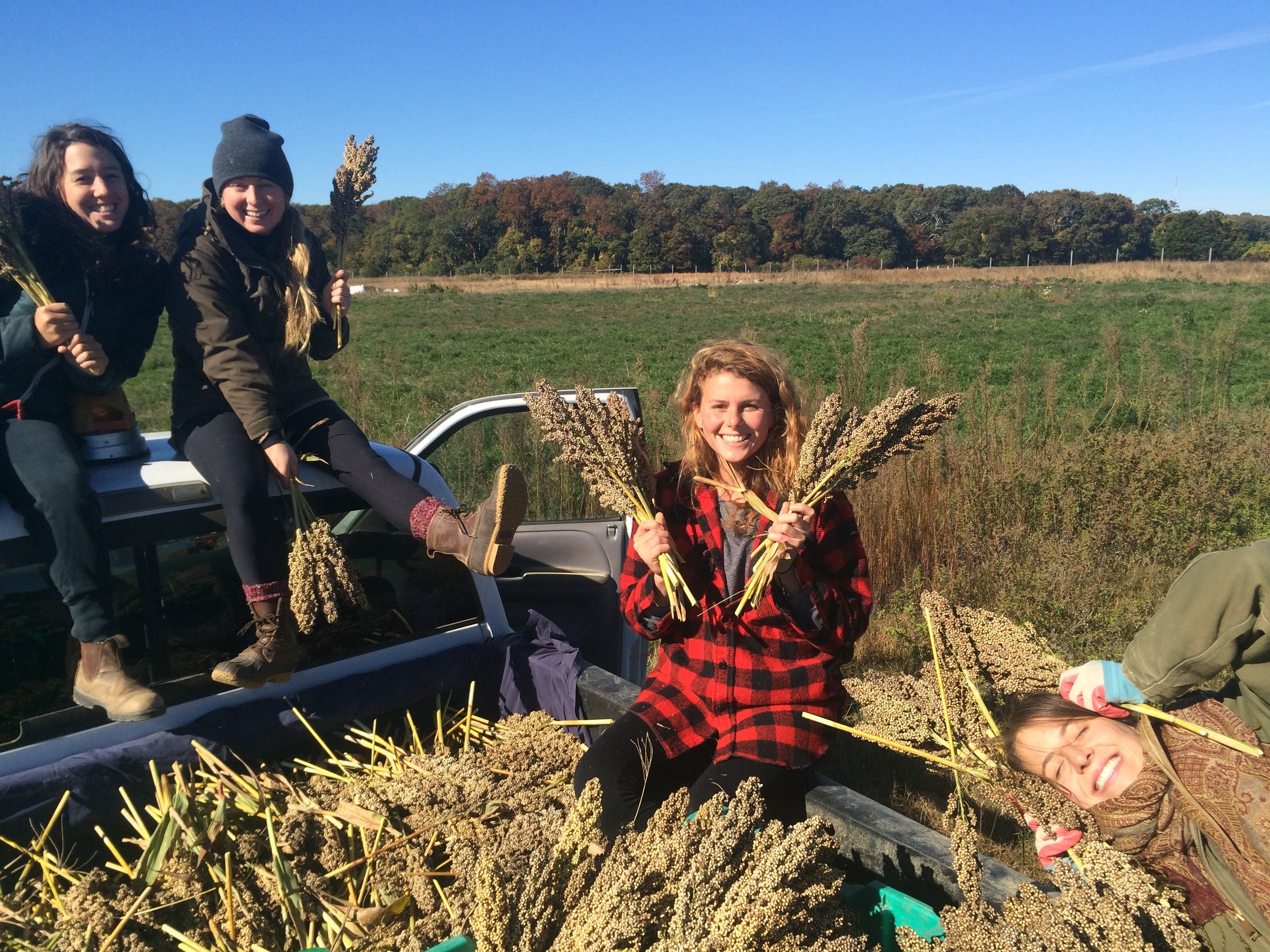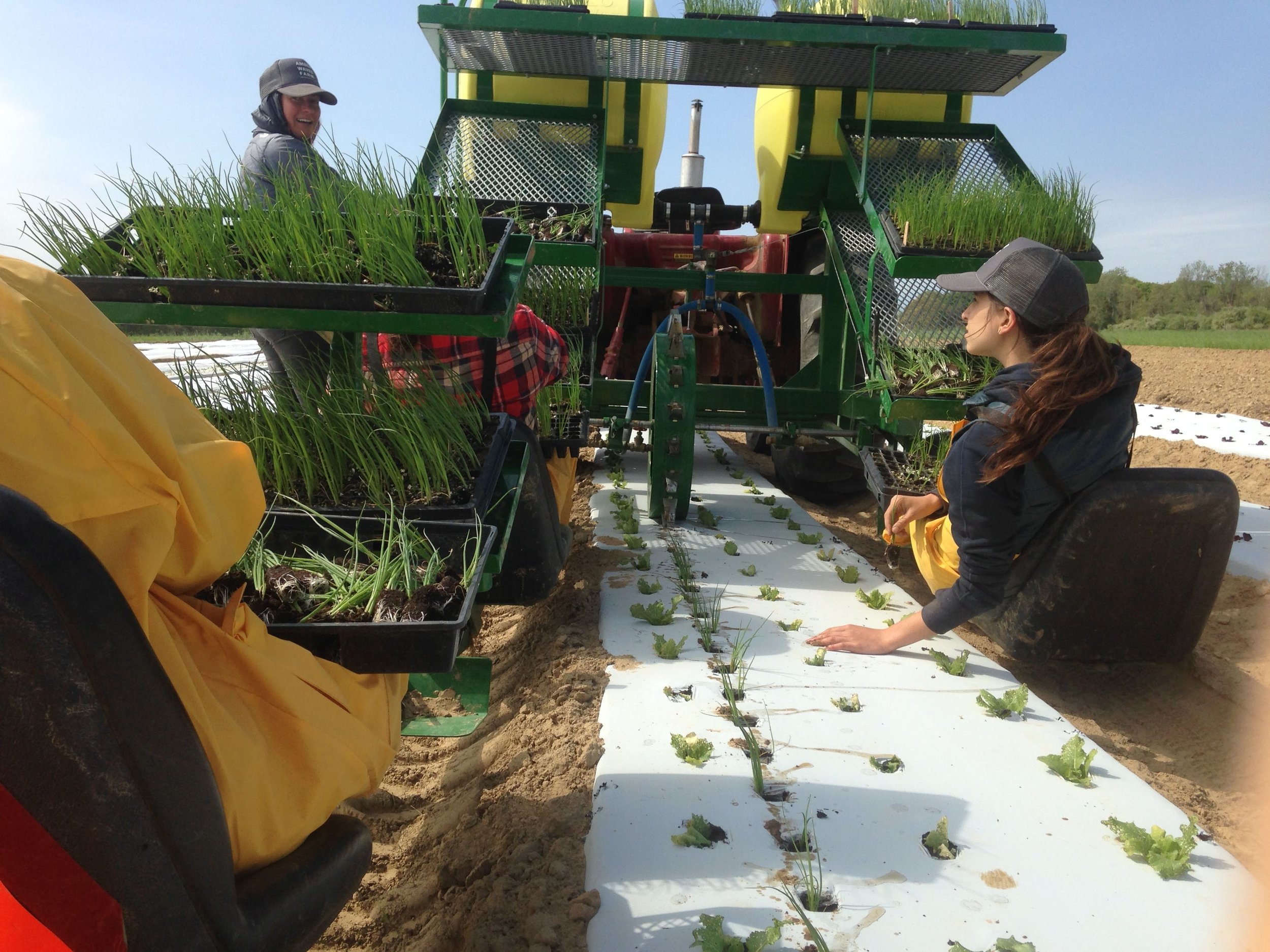Farming Apprenticeship
Since 2012, more than 60 young farmers have successfully completed our Farming Apprenticeship Program.
The Apprenticeship Program includes a dual working and learning model: hands-on fieldwork supported by in-depth written materials and dedicated teaching time. During this eight month (approximately 2,000 hour) intensive season, apprentices are immersed in all areas of the farm's activities.
In the field, they master technical skills in plant propagation, cultivation, crop successions and rotations, soil health, harvesting, and tractor work. In addition to field work, apprentices are actively involved in fresh produce sales at our on-site market and participate in teaching community education programs.
Our goal for the program is for each apprentice to develop the foundational understanding and necessary skillset to move on to more advanced work and training in agriculture or food policy.
Of the more than 500 varieties of 60 crops we grow, new farmers are the most important.
Katie and Amanda met while working as apprentices at nearby Quail Hill Farm with Scott Chaskey in 2008.
Why a Farming Apprenticeship?
The average farmer in the United States is 58 years old, and only 6% of American farmers are under 35. As farmers retire with fewer young people replacing them, we face an immense loss in knowledge and experience that threatens our national food security. The overall decline in the amount of small-scale diversified fresh fruit and vegetable farms in particular impacts all consumers across the country.
As we continue to face an increasingly uncertain global market, food insecurity among our most vulnerable populations, and the growing intensity of climate change, we must actively train new farmers to help address these complex challenges.
Apprenticeship programs increase access to the farming industry by offering paid learning opportunities to individuals without a traditional agricultural background or upbringing and remove barriers to entry for people who can’t afford to pay for school or who already have student debt to contend with.
By including trainees from a variety of diverse backgrounds - professional, geographic, cultural, racial, and socio-economic - we can build the roster for the next generation of farmers, sustainability advocates, and community leaders. The formal apprenticeship combines paid on-the-job training with job-related instruction that leads to a well-rounded understanding of how to grow and sell food while being a positive contributing member of the local community.
More than 50 young people who have completed the program have gone on to pursue farm ownership, taken management positions at other farms around the country, pursued advanced degrees in food studies and wellness, and have begun careers in legal advocacy work in food and agriculture. Many of these individuals stayed on at Amber Waves for additional training before continuing their careers elsewhere, and today, five of our former apprentices who make up our skilled farm management team have become farmer educators themselves.
Our goal is to be an institutional leader in agricultural education for aspiring farmers.


